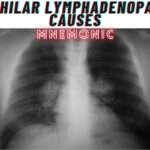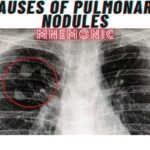👨⚕️ Ah, Osler’s nodes — the small, painful clues from the great beyond of endocarditis. Tiny, elusive, and just annoying enough to make you think, “Should I have listened more in pathology lectures?”
Let’s cut to the clinical chase: If your febrile patient suddenly develops a new regurgitant murmur, endocarditis is the diagnosis until proven otherwise. 🕵️♂️💉
Now, somewhere in that murky clinical picture, Osler’s nodes sneak in like guilt after skipping a night shift. And if you’ve ever mistaken them for Janeway lesions during a 2 AM round in the CCU, you’re not alone. Been there. Confused that.
Mnemonic: The Four P’s of Osler’s Nodes
| Explanation | |
|---|---|
| P | Pink – They appear erythematous or reddish |
| P | Painful – Tender to touch (unlike Janeway lesions, which are as emotionally distant as your ex) |
| P | Pea-sized – Small, raised nodules (usually <1 cm) |
| P | Pulp – Found on the pads (pulp) of the fingers and toes 🖐️👣 |
🩺 Clinical Encounter from Quetta
During a recent rotation in the CCU at Sheikh Khalifa Bin Zayed Hospital, I reviewed a patient with prolonged fever and mitral regurgitation — a classic “click-whoosh” murmur orchestra. A junior pointed out a small tender lesion on the fingertip. “Probably nothing,” they shrugged.
I smiled. “My friend, in endocarditis, even the skin whispers.”
Blood cultures followed, and lo and behold — Streptococcus viridans. The pink, painful pea-sized prophet on the pulp had spoken.
🧬 Pathophys (for the nerds among us)
Osler’s nodes are the result of immune complex deposition in the dermis. Think of them as Type III hypersensitivity’s passive-aggressive gift to your fingertips.
They’re often accompanied by other stigmata like:
- Roth spots 👁️
- Splinter hemorrhages 🩸
- Janeway lesions (non-tender, palmar/plantar — no emotional baggage)
💡 Quick Takeaways for the Wards:
Painful node on pulp? Think Osler.
- Tender + murmur + fever = blood cultures. STAT.
- Don’t confuse with Janeway — they’re painless and more laid-back (probably yoga instructors).
- Never ignore the skin in systemic diseases — it often tells the whole story.
Happy learning, folks! 🙂
Dr. Aurangzaib Qambrani
MBBS, PLAB, MRCP-UK (Part 1)
General Medicine, Gastroenterology & CCU
Sheikh Khalifa Bin Zayed Hospital, Quetta


![How to Remember Southern, Northern, and Western Blot Tests [Mnemonic] How to Remember Southern, Northern, and Western Blot Tests](https://www.medicosrepublic.com/wp-content/uploads/2025/06/How-to-Remember-Southern-Northern-and-Western-Blot-Tests-218x150.jpg)
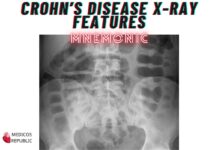
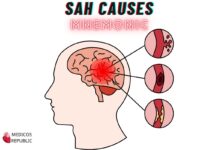
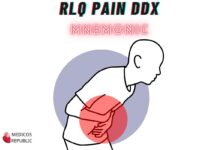
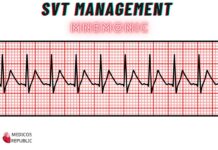
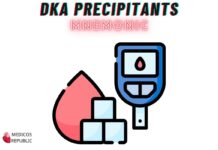

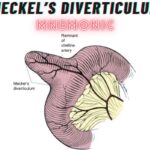


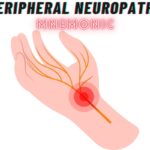

![Gerstmann Syndrome Features Mnemonic [Easy-to-remember] Gerstmann Syndrome Features Mnemonic](https://www.medicosrepublic.com/wp-content/uploads/2025/06/Gerstmann-Syndrome-Features-Mnemonic-150x150.jpg)
![Cerebellar Signs Mnemonic [Easy to remember] Cerebellar Signs Mnemonic](https://www.medicosrepublic.com/wp-content/uploads/2025/06/Cerebellar-Signs-Mnemonic-150x150.jpg)
![Seizure Features Mnemonic [Easy-to-remember] Seizure Features Mnemonic](https://www.medicosrepublic.com/wp-content/uploads/2025/06/Seizure-Features-Mnemonic-1-150x150.jpg)

![Recognizing end-of-life Mnemonic [Easy to remember]](https://www.medicosrepublic.com/wp-content/uploads/2025/06/Recognizing-end-of-life-Mnemonic-150x150.jpg)
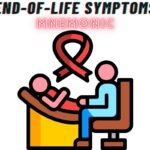
![Multi-System Atrophy Mnemonic [Easy-to-remember] Multi-System Atrophy Mnemonic](https://www.medicosrepublic.com/wp-content/uploads/2025/06/Multi-System-Atrophy-Mnemonic-150x150.jpg)

![How to Remember Southern, Northern, and Western Blot Tests [Mnemonic] How to Remember Southern, Northern, and Western Blot Tests](https://www.medicosrepublic.com/wp-content/uploads/2025/06/How-to-Remember-Southern-Northern-and-Western-Blot-Tests-150x150.jpg)

